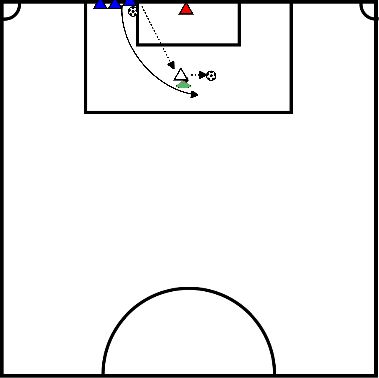Soccer drills
- Tag: the tagger tries to take off the vests from the shorts.
- All other players have a vest tucked into their pants from behind
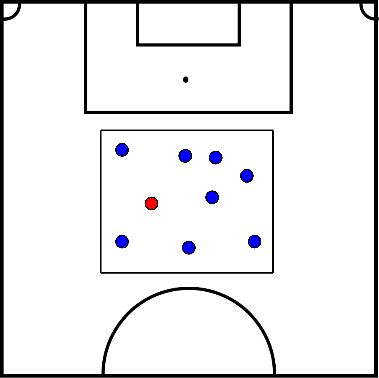
- Player 1 and player 3 pass a long ball across the goal.
- Player 2 and player 4 take the ball and must attack.
- Player 1 and player 3 must defend.
- Is the 1 versus 1 played then players 2 and 4 move on and players 1 and 3 join the back of the line.
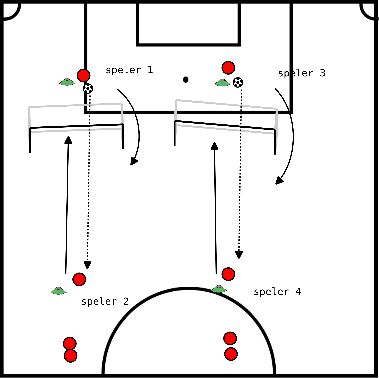
- Blue plays the ball to blue and runs to red
- Red plays the ball to red and runs to blue
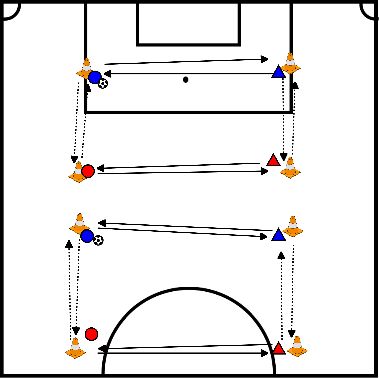
- Red passes to blue.
- Blue passes a deep pass to white.
- White works off the goal.
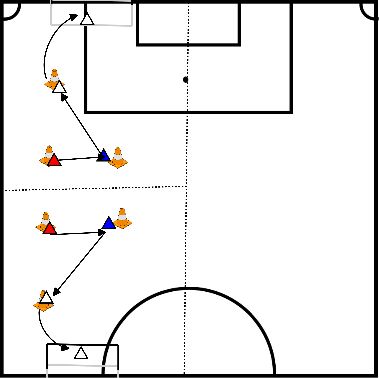
- Blue runs to the pot and cuts off.
- Blue passes the ball to red.
- Red tries to score.
Variations:
- inside/outside ball cut off.
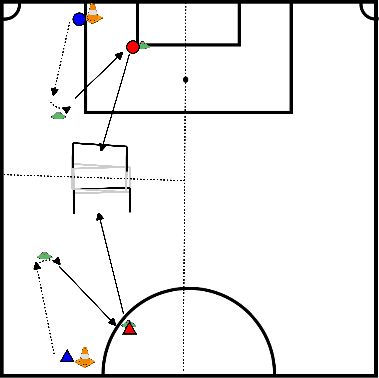
- Player 1 passes the ball to Player 2.
- Player 2 passes to Player 3.
- Player 3 is going to attack with Player 1.
- Player 2 goes to defend on Player 1 and 3.
- Goalkeeper 1 tries to catch the ball.
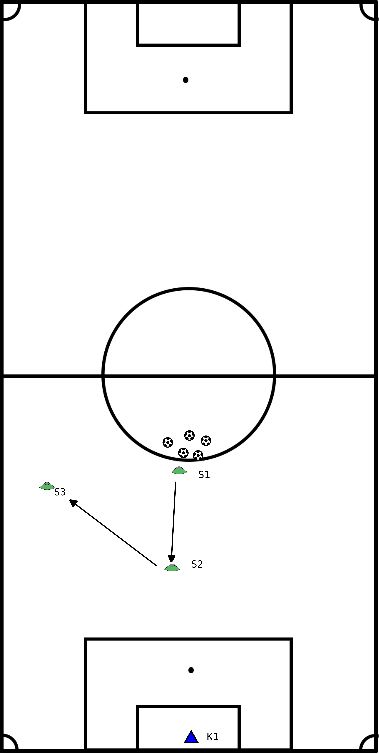
- S2 is central and asks ball to S1.
- S1 plays ball in.
- S2 spins out and does double pass to S3 who asks for ball with pre-action.
- S3 takes ball and does slalom with turn on each side and passes with ball to back pot.
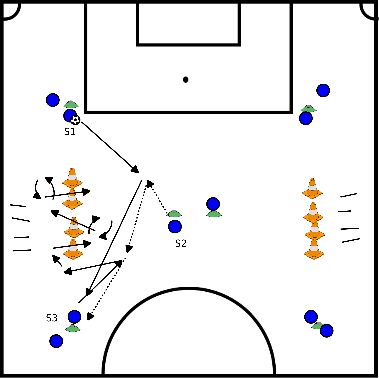
- Put 4 hoops around each goalkeeper; 1 in front, 1 on the left, 1 on the right, 1 behind
- Trainer stands in front of the goalkeepers
- Goalkeepers dribble on the spot
- When trainer says; front/ back/ left/ right goalkeepers step with both feet in this direction and then step back into starting position
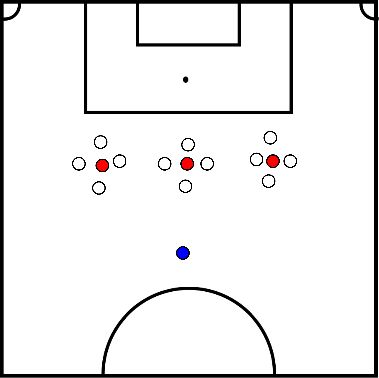
- K1 gets ball from trainer
- K2 puts pressure on K1
- K1 plays ball into 1 of 2 small goals
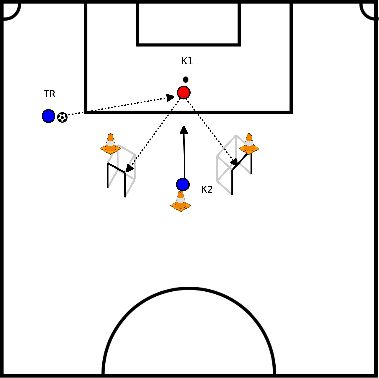
- Player 1 passes the ball to player 2.
- Player 1 runs through and player 2 lays the ball wide.
- Player 1 passes the ball to player 3.
- Player 2 meanwhile has run on to the goal.
- Player 3 passes a cross to player 2 and and then player 2 finishes.
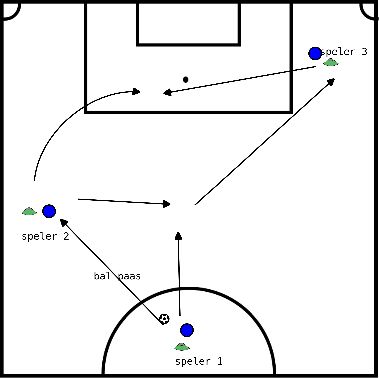
Per 2 passes to each other:
- Short distance
- Long distance
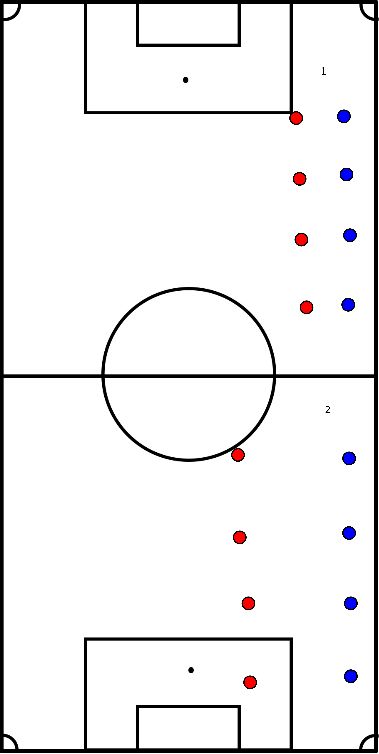
- Players on 1 side of goal next to post.
- 1 handball player-the trainer-at the height of 16 meters.
- Player must pass in tightly around handball player sprint maximum and finish.
- Let the player get the ball himself.
